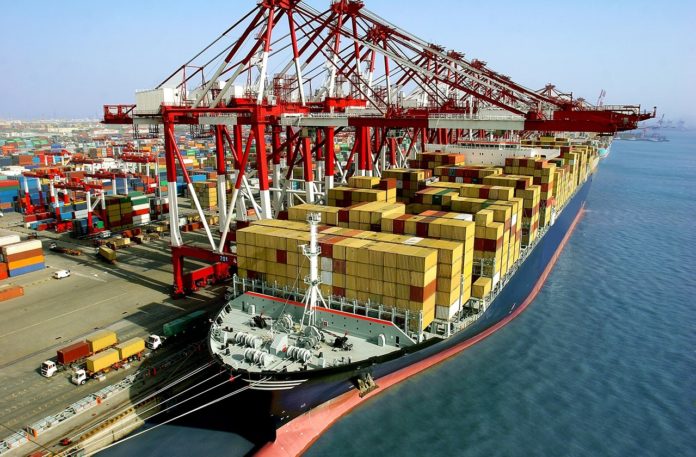How Drones Are Changing the Shipping Industry
Most people are familiar with the drones used to take aerial photographs or to fly around their backyards as hobbyists. Industries including the military also rely on drones for their operations. Here, we’ll look at the current and future impact of drones on the shipping industry.
Drones Making Deliveries to Offshore Ships
Companies are always looking for ways to streamline their operations. For many of them, that means seeing how drones might help. Airbus chose Singapore as its testing ground for a pilot that involves depending on drones to deliver goods to ships anchored offshore. The parcels have a maximum weight of approximately 3 pounds.
Efficiency is one of the notable advantages of using drones like this. The drones used for this trial complete a journey of almost a mile and make the entire trip in approximately 10 minutes. According to Airbus, the drones could handle slightly longer routes and heavier cargo. As such, these vehicles could give shipping companies another option when transporting goods to offshore vessels.
Using Drones to Move Medical Samples
Drones could also be advantageous when dealing with delicate, time-sensitive samples. At least, that’s the hope of a hospital system in North Carolina that’s using drones to carry patient specimens. For now, most of them get transported in courier cars, but the organization believes drones could be beneficial for avoiding issues such as road traffic backups.
The drones have rechargeable batteries and can travel more than 12 miles while holding samples weighing up to 5 pounds. The hospital carrying out this trial has multiple facilities, and drones may assist in getting samples to the pathology lab quicker than usual, especially when they come from relatively distant places.
In another instance that combines medical deliveries and drones, people in Ghana will receive medical supplies — including blood for transfusions — via drones. Supporters of this initiative say it could be exceptionally useful for getting things to remote areas substantially faster than road-based vehicles could.
A Push Towards Sustainability in Storage and Transport
Companies that ship things to their customers increasingly look towards ways to promote sustainability. They know doing that could save them money and please customers at the same time. For example, bulk bags store hundreds or thousands of pounds of dry products, keeping them safe during storage or transport.
Consider that 42 million bulk bags get used annually every year, representing an average annual growth rate of approximately 15 percent. Bulk bags are strong enough for reuse, letting companies cut down on wasted resources. Similarly, there are reusable shipping envelopes and boxes for smaller quantities of goods. When companies choose those, they can move towards more sustainable practices.
So, how do drones assist with increased sustainability? They can’t hold the large quantities that bulk bags do, but like bulk bags, they fit into the broader emphasis on sustainability in shipping.
According to a study, drones use less energy than trucks in some cases. More specifically, researchers found that in states like California that have access to sustainable fuels for drones, the carbon footprint is smaller for a drone trip than it would be in instances where states are more dependent on fossil fuels.
Plus, it’s important to keep in mind that people are hard at work creating cargo drones to carry significantly larger loads — maybe even bulk bags. For example, at one startup, tests are underway with prototype drones that are 30 feet long and carry 700 pounds and could travel as far as 2,500 nautical miles. These trials are just “taxi tests” on bodies of water now, but the research team will get these drones ready for their first flights in an upcoming phase.
A Federal Grant to Explore Drone Delivery Possibilities
Analysts predict that the worth of the drone logistics and transportation industry will surpass $29 billion by 2027. And, it’s arguable that an increase in dedicated research could help scientists overcome obstacles and make lasting progress.
That’s why it’s good news that a research team from Carnegie Mellon University received a federal grant worth $2.5 million and will use some of the funds to examine the energy implications of autonomous technologies including drones — specifically to handle the first and last-mile segments of deliveries.
Those are the most costly and energy-intensive portions. The researchers will also get input from companies in Pittsburgh, including Amazon, during their project.
It’s too early to say now what kind of impact this academic study might have. But, if successful, it could encourage more enterprises to consider drones for some of their shipping needs.
An Exciting Future in the Shipping Industry
These examples show how drones could drastically change how things get shipped. If that happens, items could reach their destination in a way that saves energy.
Author Bio:Emily is a green tech writer who covers topics in renewable energy and sustainable design. You can read more of her work on her blog, Conservation Folks.




I read the complete blog and I really like this blog. If you are thinking to get high quality and ultimate bulk bags then find the perfect solution or reliable bulk bag manufacturers/supplier. Sudarshan Addpack is one of the finest place from where you get get the bopp woven bag and PP woven bags and more.
Sudarshan Addpack is a leading FIBC bags supplier & manufacturer, Top Manufacturers & Suppliers of packaging bags, fibc bags, bopp bags, pp bags & fabric in USA, UK, Australia, Canada, Germany, Italy. Sudarshan Addpack is a complete bulk packaging solution with best quality.
I read the complete blog and I really like this blog. If you are looking for high quality and ultimate bulk bags then find the perfect solution or reliable bulk bag manufacturers and supplier. Sudarshan Addpack is one of the finest place from where you get get the bopp woven bag and PP woven bags and more.